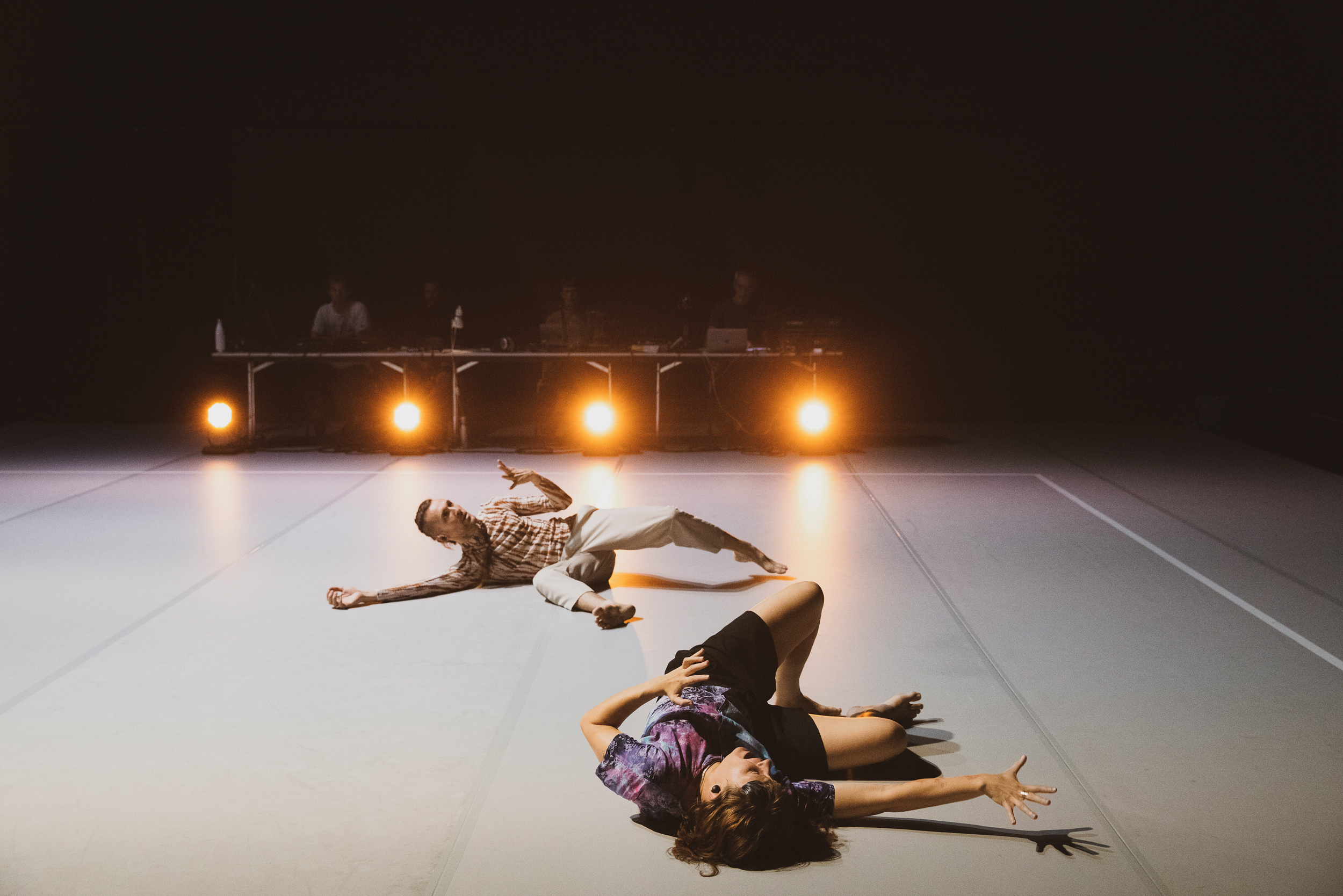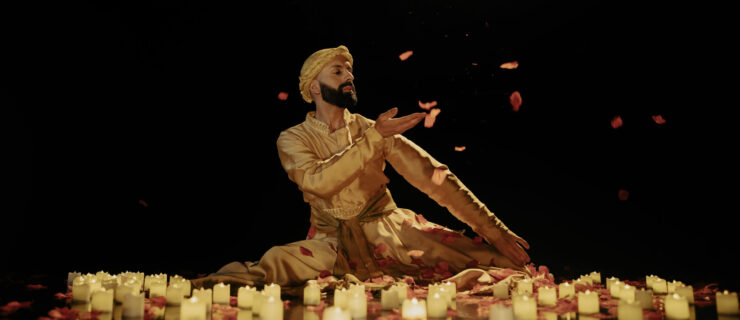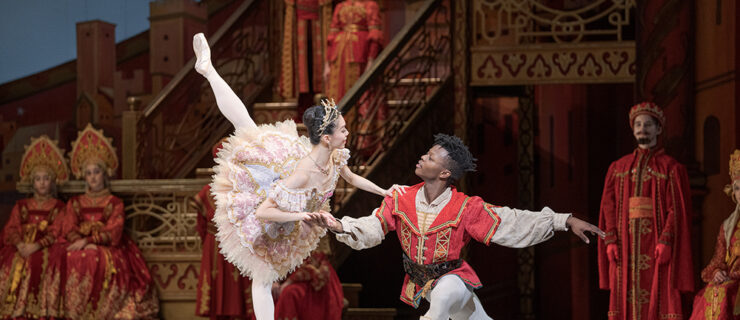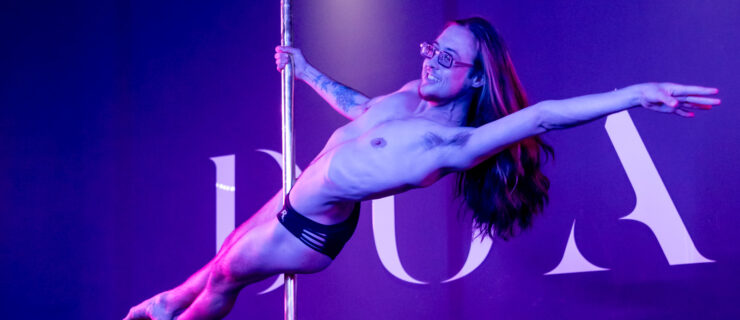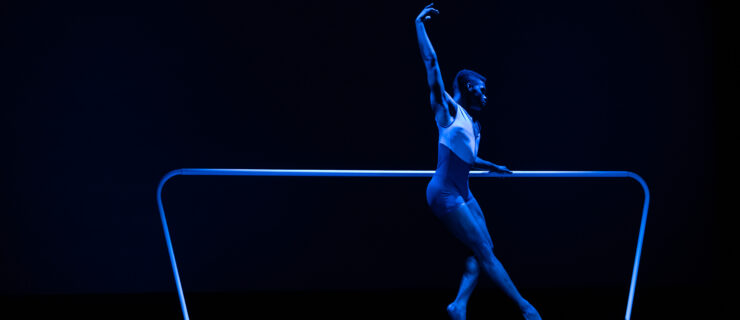“Innovative, Edgy, and Perhaps Difficult to Like”: The 2024 Venice Biennale’s Experimental Dances
Choreographer Wayne McGregor wants to expand the definition of dance. For the Venice Biennale’s 18th International Festival of Contemporary Dance, he has invited “artists who are interested in exploring any notion of physical intelligence,” he says, “expressed in whichever art form they want. Often it’s expressed through choreography, but it can easily be expressed through artificial intelligence or through installation work where the body is present or not present.”
This is McGregor’s fourth year serving as director of the dance festival, which runs from July 18 through August 3—part of the larger Venice Biennale—and features a jam-packed schedule of world premieres and site-specific stagings across nine venues. McGregor hand-picked dancemakers based on his festival theme, “We Humans,” and also selected participants for the Biennale College Danza, an intensive where three choreographers and 16 dancers work together on new pieces in Venice.
McGregor’s hope is to create opportunities for dancemakers both inside and outside of traditional commercial and concert circuits. He intentionally programmed work that he describes as “innovative, edgy, and perhaps more difficult to like.” While the pieces may not have the same mass appeal as those presented at star-studded galas, it “is probably more important to be funded,” he says. Institutions can be risk-averse in their programming, but he wants to give a platform to these boundary-pushing voices.
He selected Cristina Caprioli, a Sweden-based Italian choreographer, for the festival’s Golden Lion Award for Lifetime Achievement. Caprioli’s transdisciplinary nonprofit ccap produces community events and intellectual symposia in addition to dance performances. “We’re not really participating in the market,” she says. “We’re not trying to sell ourselves. We are keen on producing work that is sustainable over years and that can communicate and speak to heterogeneous groups of people.”
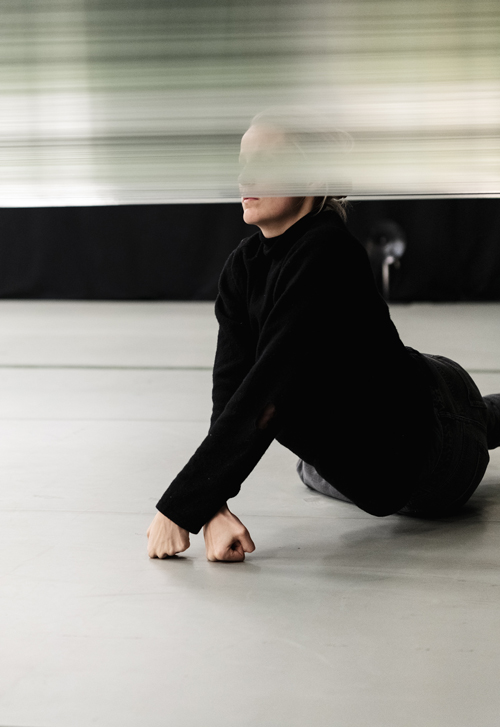
Caprioli will present four pieces at different venues throughout Venice during the festival, including flat haze (2019), in which her explorative movements unfold under a canopy of threads. Her world premiere—The Bench, based on a textual narrative she wrote in 2020—will be performed in the middle of Venice’s famous Giardini park, where the festival’s visual art pavilions are located.
While Venice’s dance festival occurs annually, the Biennale’s historic visual art festival, which tends to draw a larger crowd, takes place on alternating years. So this summer offers a special opportunity for cross-pollination. “You’re getting this kind of accidental or occasional audience that come to see the art and then realize that there’s dance there,” says McGregor, “and they’re a critically curious audience who are willing to give feedback.”
Biennale attendees will have many dance options to choose from. Dance Magazine cover star Trajal Harrell, whom McGregor selected for the Silver Lion Award, will be presenting two works: his solo Sister or He Buried the Body and the group piece Tambourines. In Find Your Eyes, self-described “choreo-photolist” Benji Reid turns the stage into his photography studio, creating images of the three dance performers in real time. Dance meets technology in Swiss choreographer Nicole Seiler’s Human in a Loop, where the viewers watch AI setting movement for the dancers in real time, and in Véréna Paravel and Lucien Castaing-Taylor’s genre-defying De Humani Corporis Fabrica, in which tools drawn from medical diagnostic technology and noninvasive microsurgery show the body from the inside out.
The through line in this diverse collection of dances? “Connection,” says McGregor. “My first sense was about touch. When you feel the weight of a body, you have a different responsibility and care for that body, when it’s not an abstracted thing.” His second layer of connection, of being “boundaryless,” opens the interpersonal to the global. “We’re in a situation politically and in the world where it’s so easy to dehumanize everyone,” he says. “I wanted the festival to concentrate on human stories and remind us what we all share.”
See the full schedule at labiennale.org.
